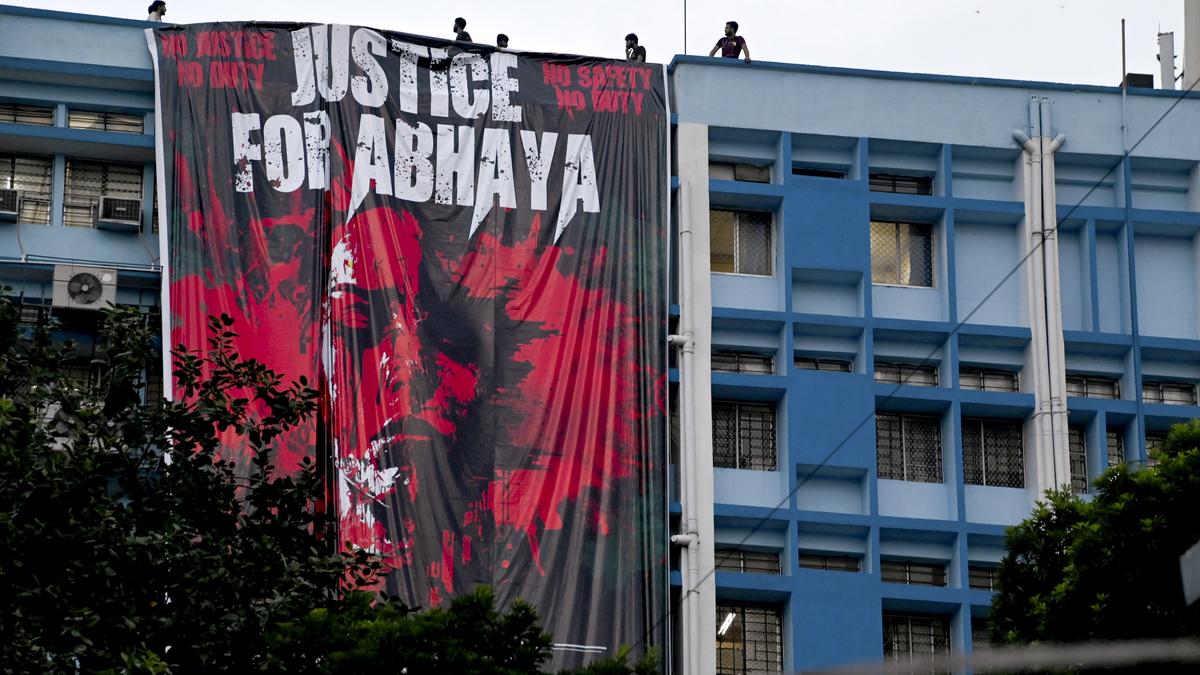The long-awaited verdict in the brutal RG Kar Medical College case, known as the infamous “Abhaya” case, has sparked nationwide outrage. Sanjay Roy, convicted of the heinous rape and murder of a 31-year-old trainee doctor in Kolkata, was sentenced to life imprisonment by a Calcutta court. The victim’s family and the medical fraternity had fervently called for the death penalty, arguing it would act as a stronger deterrent against such barbaric crimes. However, the court deemed life imprisonment sufficient, as the case didn’t fall into the ‘rarest of the rare’ category—a decision that raises serious questions about the justice system’s ability to uphold the collective conscience of society. The argument for the death penalty was not merely emotional; it was grounded in the severity of the crime—a young doctor was raped and murdered while on duty in a state-run hospital. The attack, which shook the nation, highlighted the vulnerability of women, particularly those working night shifts in high-risk environments. By opting for life imprisonment, the court has sparked fears that the convict might one day walk free on grounds of “good behaviour” or “repentance,” leaving many questioning the adequacy of this punishment in cases of such grotesque violence. Adding to the controversy is the role of the West Bengal government, led by Chief Minister Mamata Banerjee. The state administration, often criticized for its deteriorating law and order, now vocally supports the demand for the death penalty. This sudden stance, however, seems more like political posturing than genuine concern. After all, the same government faced allegations of attempting to cover up the crime. The Chief Minister, who holds both the Home and Health portfolios, was accused of failing to ensure security in state-run hospitals and of allowing a chaotic scene at the hospital that destroyed critical evidence.

The case, labelled by many as an “open-and-shut” trial, exposed systemic failures. The accused, identified through CCTV footage and a Bluetooth earphone found at the crime scene, was arrested swiftly. Yet, the state’s negligence during the initial investigation drew sharp criticism. It was only after the court intervened and ordered a CBI probe that the investigation gained traction. The victim’s family, refusing state compensation, has been unwavering in their demand for justice. Their stance reflects the public’s frustration with a government they believe failed to protect its citizens and is now scrambling to salvage its image. The BJP, the principal opposition in the state, has already capitalized on this sentiment, accusing the ruling Trinamool Congress of shielding its failures. In the aftermath of this judgment, the Mamata government has taken the right step in this direction, approaching the state High Court to challenge the lower court’s verdict of life imprisonment for the convict in the Abhaya rape and murder case. Undoubtedly, the lower court’s decision feels less like justice and more like a compromise—a flawed resolution to a heinous crime that demands the harshest retribution. For now, the nation watches, waiting to see if the system will rise to meet the expectations of a society betrayed.






